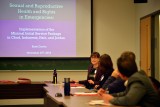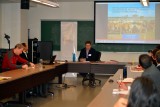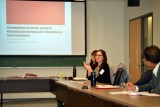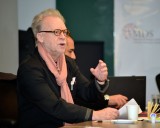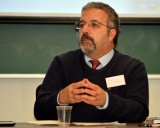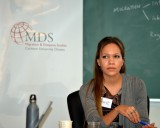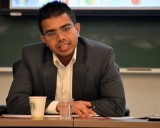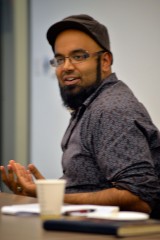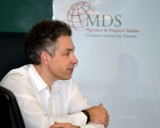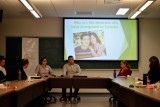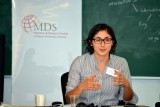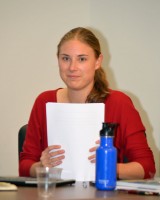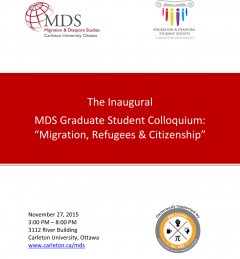MDS Graduate Student Colloquium
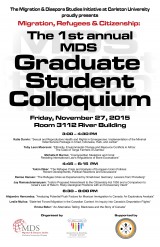
One may have harboured concerns about the potential for screwball comedy before the colloquium and half-jokingly asked, ‘what happens when a literary historian, an architect and a political scientist walk into a bar seminar room?
Such concerns were unfounded when the colloquium brought together members of research, practitioner and policy communities who represent the excellent diversity of Migration and Diaspora Studies. Audience members were treated to presentations that encouraged them to take the poetic imagination seriously; to think more deeply about neologisms such as deportspora; and to investigate the material dimensions and metaphors that frame our understandings of space, place and belonging. Students, faculty and public servants not only managed to convey the significance of topics relating to state security, transnationalism, refugee communities, cosmopolitanism and exile in relation to their disciplinary homes in fields such as Law and Legal Studies, Political Science and Public Health. They also facilitated interdisciplinary discussion of concepts such as affect, coloniality, and state violence that are key to our understanding of contemporary debates about the movement of people and ideas.
Further details regarding the titles, abstracts, and biographies of the presenters can be found in the colloquium program.
Special thanks to: Johnny Alam (TD Fellow in Migration and Diaspora Studies and President of the Migration and Diaspora Student Society) for his work organising the event, and the chairs and discussants from Carleton University who provided such thought-provoking questions about the politics and poetics of MDS: Dr. Stuart Murray (Department of English Language & Literature and the Department of Health Sciences ), Dr. Roger Connah (Azrieli School of Architecture & Urbanism), Ajay Parasram (Institute of Political Economy), Dr. William Waters (Political Science and Sociology/Anthropology departments) and Dr. Gabrielle Etcheverry (History and Latin American and Caribbean Studies).

